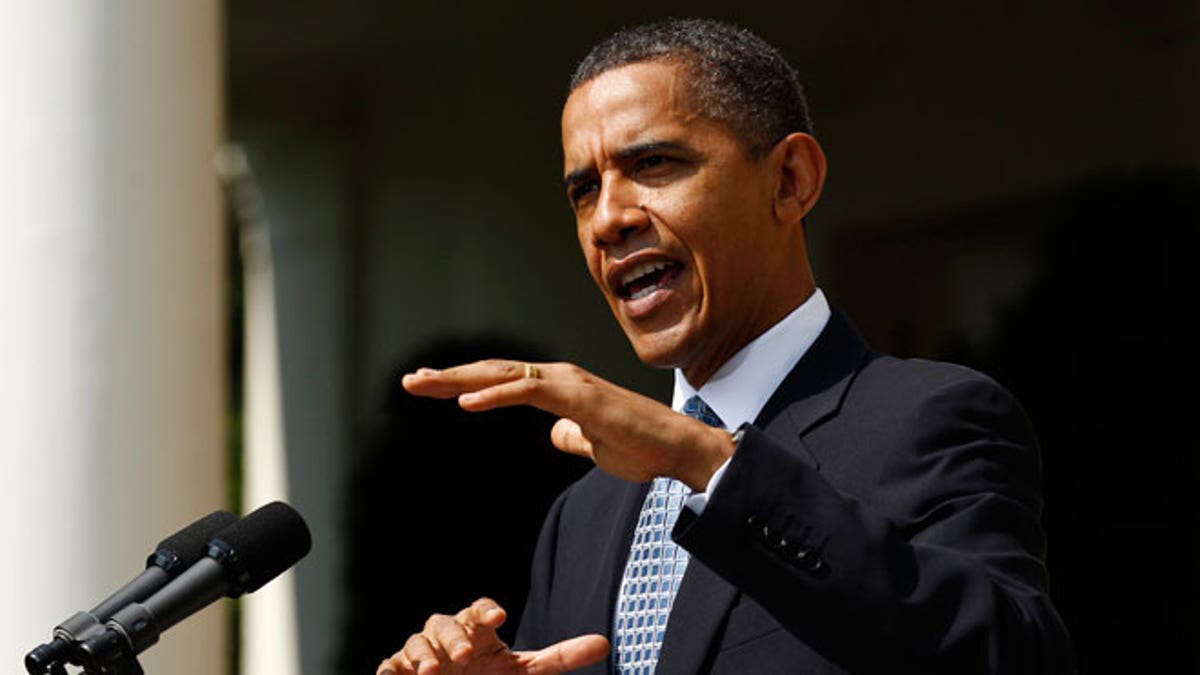
(Reuters)
President Barack Obama challenged the U.S. Congress Tuesday to vote next week to save an expiring payroll tax cut, a day after a high-profile effort to tackle huge U.S. deficits collapsed in acrimony.
A new Reuters/Ipsos poll showing that Americans blamed Obama in part for the ``super committee'' failure underscored the challenges he faces to persuade voters he is the still the best steward of the economy.
Obama, who is seeking re-election in 2012, was in campaign mode when he traveled to New Hampshire -- a key voting state where his Republican challengers will hold one of the first primary votes of the 2012 election in January.
He caricatured Republicans as the ``Grinch,'' a mean-spirited character in a popular children's book about Christmas, for failing to back his $447 billion jobs package and an extension of payroll tax cuts due to expire at the end of the year.
Investors are already fretting about the fate of the tax cuts, worried that Congress' failure to extend them could put a damper on fragile economic growth.
Obama flew to New Hampshire after members of a bipartisan congressional super committee announced that months of talks failed to produce a deal to cut $1.2 trillion from U.S. deficits.
An online Reuters/Ipsos poll showed Americans blamed a combination of Obama, Republican and Democratic lawmakers the most for the panel's failure. More than one-third of those surveyed said it lowered their opinion of Obama.
The president ramped up pressure on Republicans to back the tax cut extension.
``In the spirit of Thanksgiving, we are going to give them another chance,'' Obama said, referring to lawmakers in Congress and this week's Thanksgiving holiday.
``Next week they are going to get to take a simple vote. If they vote no again, the typical family's taxes will go up $1,000 next year,'' Obama said in a campaign-style speech to a cheering crowd packed into a high school gymnasium.
He got a roar from the crowd when he urged them to tell lawmakers, ``Don't be a Grinch.''
Lawmakers initially hoped to include the tax break for workers and other expiring economy-boosting measures in any deal that would have emerged from the 12-member super committee.
A senior Democratic congressional aide said plans were being made to debate the payroll tax cut measure in the Senate in early December and possibly as soon as next week.
NEW HAMPSHIRE ON PURPOSE
The White House specifically chose New Hampshire for Obama's latest rebuke of Republicans, a state that has mostly seen Republican presidential hopefuls visiting as they try to woo voters before the January primary.
Republicans have not ruled out extending the tax cut and jobless benefits, but they are likely to insist on additional spending cuts to offset their $168 billion cost. That could dampen the stimulative effect of the tax cuts.
While the details of the legislative effort are still being worked on, Democrats could attempt to pay for the payroll tax cut extension by raising taxes on the wealthy. Republicans have blocked that idea in the past and likely would do so again.
In that event, the tax cut extension could come up again in an end-of-year, catch-all bill to fund many government programs through next September, the end of the current fiscal year.
``I think it will happen but not without a lot of drama. But I don't think that will have any effect on markets. If it doesn't happen, though, that could spook people and trigger a rally in bonds,'' said James Sarni, a money manager at Payden & Rygel in Los Angeles.
``It would just feed the fire by confirming that we are in real trouble economically.''
Even though global stock markets dropped Monday amid reports the super committee had collapsed without a deal, most markets have moved on to more near-term worries like the debt crisis in Europe. U.S. stocks were flat Tuesday.
Analysts warn that economic growth could slow by up to 1.5 percentage points in 2012 if the 2 percent payroll tax cut and enhanced jobless benefits are allowed to lapse.
``If Congress doesn't want to extend some of these benefits, then it's going to ensure that the economy faces more hurdles,'' said Joel Naroff chief economist at Naroff Economic Advisors.
``Add that to the uncertainty in Europe and you have a very disturbing outlook for the first half of next year.''
Investors are also worried Congress might try to undo $1.2 trillion in automatic spending cuts over 10 years that will begin in 2013 as a result of the super committee washout.
Republicans are already scrambling to shield the military from $600 billion in cuts.
One Republican defense hawk, House of Representatives Armed Services Committee Chairman Buck McKeon, announced his intention to undo the military cuts even before the deficit committee had admitted defeat Monday.
Obama has vowed to veto such a move. His own defense secretary is lobbying hard to preserve the Pentagon's budget.
Credit-rating agencies, already dismayed by Washington's inability to tackle the country's fiscal woes, could downgrade U.S. debt if the cuts are rolled back.










































